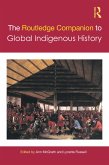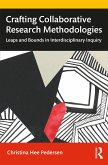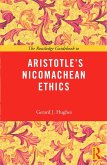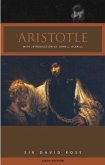This book introduces students to ethics in historiography through an exploration of how historians in different times and places have explained how history ought to be written and how those views relate to different understandings of ethics.
No two histories are the same. The book argues that this is a good thing because the differences between histories are largely a matter of ethics. Looking to histories made across the world and from ancient times until today, readers are introduced to a wide variety of approaches to the ethics of history, including well-known ethical approaches, such as the virtue ethics of universal historians, and utilitarian approaches to collective biography writing while also discovering new and emerging ideas in the ethics of history. Through these approaches, readers are encouraged to challenge their ideas about whether humans are separate from other living and non-living things and whether machines and animals can write histories. The book looks to the fundamental questions posed about the nature of history making by Indigenous history makers and asks whether the ethics at play in the global variety of histories might be better appreciated in professional codes of conduct and approaches to research ethics management.
Opening up the topic of ethics to show how historians might have viewed ethics differently in the past, the book requires no background in ethics or history theory and is open to all of those with an interest in how we think about good histories.
No two histories are the same. The book argues that this is a good thing because the differences between histories are largely a matter of ethics. Looking to histories made across the world and from ancient times until today, readers are introduced to a wide variety of approaches to the ethics of history, including well-known ethical approaches, such as the virtue ethics of universal historians, and utilitarian approaches to collective biography writing while also discovering new and emerging ideas in the ethics of history. Through these approaches, readers are encouraged to challenge their ideas about whether humans are separate from other living and non-living things and whether machines and animals can write histories. The book looks to the fundamental questions posed about the nature of history making by Indigenous history makers and asks whether the ethics at play in the global variety of histories might be better appreciated in professional codes of conduct and approaches to research ethics management.
Opening up the topic of ethics to show how historians might have viewed ethics differently in the past, the book requires no background in ethics or history theory and is open to all of those with an interest in how we think about good histories.
"What does it mean to do history "ethically"? Marnie Hughes-Warrington's book examines this question from a variety of different vantage points, ingeniously linking the continued effort of approaching our pasts morally to the scale and scope by which we comprehend and represent those pasts. Whether it be from the perspective of microhistory, Big history, and everything in between, Hughes-Warrington deploys an assortment of examples from antiquity to 9/11. She thereby raises important issues that have bearing not only on how we engage ethically and empathetically with the world as it was but also with the world as it is and may yet become."
Daniel Woolf, Queen's University, Canada
"In eminently readable prose, Marnie Hughes-Warrington and Anne Martin take us on a magisterial tour of how narrating the past sheds light on the choices that face us in the present. There's no cookie-cutter way to write the past. Every single choice entails the denial of others. Yet together, the kaleidoscopic range of historical writing offers a vital guide to the never-ending work of leading the good life. Big and Little Histories is an indispensable guide in this process."
Sam Wineburg, Stanford University, USA
"This is an astonishingly agile and stimulating book. It scales heights and depths and zooms in and out, scoping histories from the micro level of minutes to the macro of millennia, as it explores the proposition that Aristotle's modelling of ethics as practical, inexact and plural can help us think productively about histories as much as ethics and about the interactions between them. The book is a history and an exposition of a range of ethical theories - addressing virtue, utilitarian, deontological, cosmopolitan ethics, infinite, entanglement ethics and much more. Equally, it is an exploration of varieties of historiography, including microhistory, children's histories, global histories, collective biographies, and indigenous histories. It is also a sustained reflection on the ethical implications of the form of history telling - exploring circular narrative structures, first and second-personal histories, universal philosophical histories, reflexive histories and much else besides. It does all this with admirable clarity and lightness of touch. The book communicates an infectious curiosity about the rich complexities of human and animal pasts - ranging over slice histories of moments, didactic thumb bibles, Big Histories of 13.8 billion years, snowball hurling, oxygen holocausts, and swarm histories written by algorithms. Its chapters enact their arguments, scale-shifting themselves and anchoring insights in particular moments and in grand narrative arcs. It is both highly readable and cries out to be read and re-read. It will be enjoyed with great profit by students of history and students of philosophy and is an argument by example for closer dialogue between the two."
Arthur Chapman, Associate Professor History in Education, UCL Institute of Education, UK
"Big and Little Histories is stimulating reading that imaginatively integrates the theories and problems of ethics with the histories of different sizes and shapes across the globe. This is an important book, because it not only argues that ethics is foundational for the writing of history, but also explains how ethics as individual responsibility is relevant and present in this practice."
Jouni-Matti Kuukkanen, University of Oulu, Finland
Daniel Woolf, Queen's University, Canada
"In eminently readable prose, Marnie Hughes-Warrington and Anne Martin take us on a magisterial tour of how narrating the past sheds light on the choices that face us in the present. There's no cookie-cutter way to write the past. Every single choice entails the denial of others. Yet together, the kaleidoscopic range of historical writing offers a vital guide to the never-ending work of leading the good life. Big and Little Histories is an indispensable guide in this process."
Sam Wineburg, Stanford University, USA
"This is an astonishingly agile and stimulating book. It scales heights and depths and zooms in and out, scoping histories from the micro level of minutes to the macro of millennia, as it explores the proposition that Aristotle's modelling of ethics as practical, inexact and plural can help us think productively about histories as much as ethics and about the interactions between them. The book is a history and an exposition of a range of ethical theories - addressing virtue, utilitarian, deontological, cosmopolitan ethics, infinite, entanglement ethics and much more. Equally, it is an exploration of varieties of historiography, including microhistory, children's histories, global histories, collective biographies, and indigenous histories. It is also a sustained reflection on the ethical implications of the form of history telling - exploring circular narrative structures, first and second-personal histories, universal philosophical histories, reflexive histories and much else besides. It does all this with admirable clarity and lightness of touch. The book communicates an infectious curiosity about the rich complexities of human and animal pasts - ranging over slice histories of moments, didactic thumb bibles, Big Histories of 13.8 billion years, snowball hurling, oxygen holocausts, and swarm histories written by algorithms. Its chapters enact their arguments, scale-shifting themselves and anchoring insights in particular moments and in grand narrative arcs. It is both highly readable and cries out to be read and re-read. It will be enjoyed with great profit by students of history and students of philosophy and is an argument by example for closer dialogue between the two."
Arthur Chapman, Associate Professor History in Education, UCL Institute of Education, UK
"Big and Little Histories is stimulating reading that imaginatively integrates the theories and problems of ethics with the histories of different sizes and shapes across the globe. This is an important book, because it not only argues that ethics is foundational for the writing of history, but also explains how ethics as individual responsibility is relevant and present in this practice."
Jouni-Matti Kuukkanen, University of Oulu, Finland








